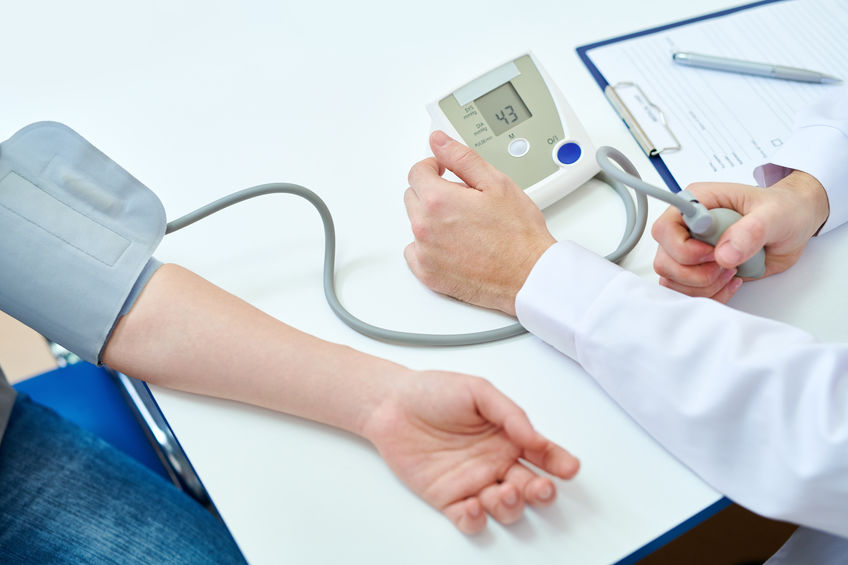 A physical examination is a routine check performed by a physician, a nurse or any other medical practitioner, to ascertain the health and fitness of a person. It is usually done voluntarily to people from time to time and you do not have to be sick to do a physical exam. The main aim of a physical examination is to check for any illnesses that may not have manifested yet. It is also a good opportunity for you to discuss or ask any health related issues you could be having. A person’s health history plays a major role in a physical examination. This article looks at the benefits of a health history during a physical examination.
A physical examination is a routine check performed by a physician, a nurse or any other medical practitioner, to ascertain the health and fitness of a person. It is usually done voluntarily to people from time to time and you do not have to be sick to do a physical exam. The main aim of a physical examination is to check for any illnesses that may not have manifested yet. It is also a good opportunity for you to discuss or ask any health related issues you could be having. A person’s health history plays a major role in a physical examination. This article looks at the benefits of a health history during a physical examination.
- Source of Additional Information
Most people visit a healthcare provider with so many issues concerning their health, such that when they start explaining them, the doctor may lose focus on the major concerns. Others may come with a number of issues that they want them addressed, but when they start explaining, they forget some and end up mentioning just a few. At the same time, other people may feel shy of mentioning some sensitive issues like the ones related to their sexual health. With a health history of the patient, the doctor will have an additional source of information that the patient may not have mentioned.
- Determines the Type of Physical Exam
A patient may visit their health care provider with an aim of getting a specific test run on them, which may be unnecessary, but by looking into a person’s health history, plus the information given verbally by the patient, the doctor will be able to determine an appropriate physical examination to be performed on the patient.
- Cost Effectiveness
The more the number of physical exams, the more expensive it is for the patient. With a health history, the doctor does not have to perform all physical examination every time you visit a health center. For example, if the health history shows there are heart problems in the family, or you have experienced blood sugar issue before, they will focus mainly on these two, if the symptoms you came with match this evidence. In the process, the patient will be saved from unnecessary tests and will save some considerable amount of money.
- Protects Against Fatal Diseases
Some diseases like cancer, hypertension, diabetes and heart problems are hereditary. Therefore, if the doctor learns that any of these runs in your family, they will recommend preventive measures. For instance, with the case of cancer, the doctor will recommend that you quit smoking and drinking. If it is an issue of heart related problems or diabetes, the physician will recommend that you adopt a healthy lifestyle that includes exercising, dieting and so on. In addition, you can also decide to educate your family members on some of these diseases in the family so that they also take preventive measures as early as possible.
- Leads to Accurate Diagnosis
Some of the information given by patients is usually inadequate, distorted, biased or misleading. Some patients feed their healthcare providers with this type of information knowingly or due to lack of proper knowledge. With this piece of information, the doctor may end up making an ineffective diagnosis. However, with the help of a health history, they will not miss any important details about their patients. The doctor will make an accurate diagnosis since the information in the health history is more accurate than what is offered by word of mouth.
- Helps Maintain a Healthy Living
If you find out that there are hereditary diseases like cancer, hypertension and diabetes in your family, it is clear that you are at risk of contracting the same diseases in future. With this information in mind, your doctor will recommend that you adopt a healthy living that includes proper dieting, exercises, quit smoking and drinking, or any other habits that may put you at the risk of these diseases.
Before taking a physical examination, it is important that you gather all the necessary information about your health history since it will play a major role in the accuracy of the diagnosis and the effectiveness of the exam. As explained above, the future of your health may sometimes depend on it. Therefore, make a point of acquiring this important piece of information. You can start by asking your relatives questions about their health. In case you are adopted, you can acquire this information from the children’s department of adoption.

